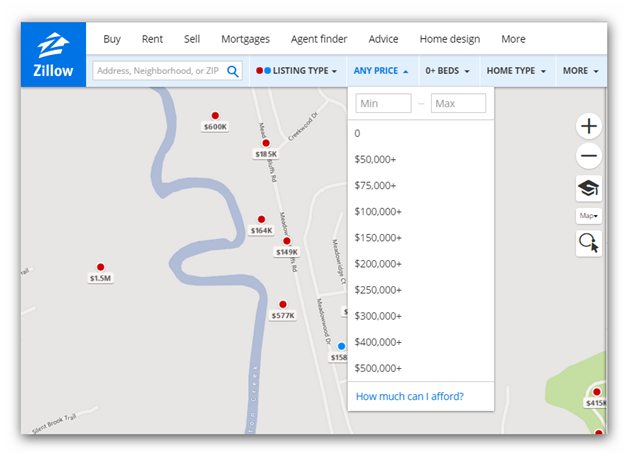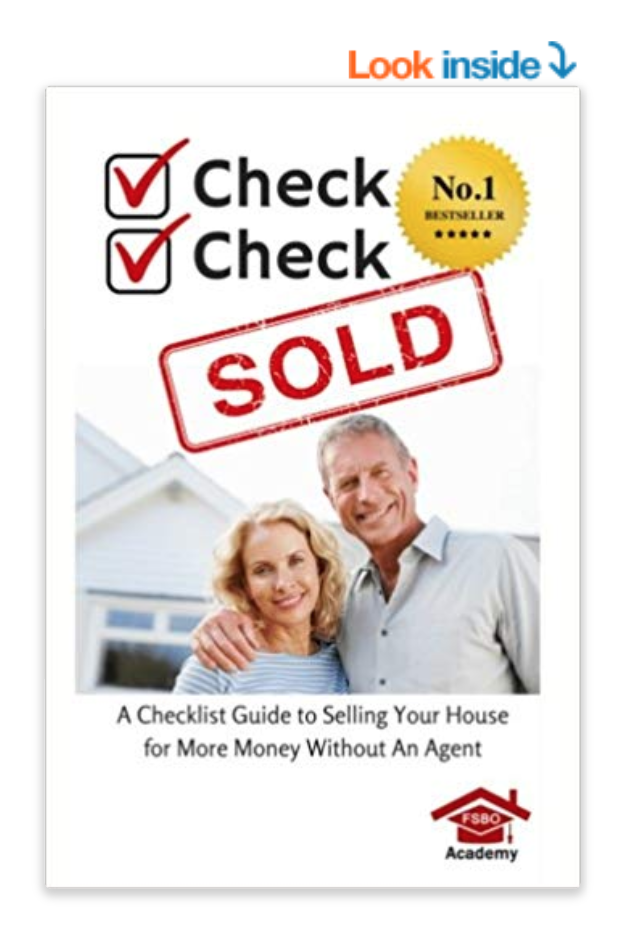Home Selling Academy
Lesson 4 - Pricing Your Home
Introduction
Now it is time for the fun to begin. This module is going to show you the different ways to price your home for sale and how to choose the best way based on your circumstances. Once you are finished with this module, you will know…
- How much you are going to price your home for sale.
- Have a good idea of how long it may take to sell.
- Be able to validate your assumptions.
As you move forward with this section, you are bound to have questions. Jump over to the Facebook Group and ask your questions. No question is too big or small.
Different Ways to Price Your House for Sale: What is best?
- Watch the Video and choose the 1-2 methods you will use to price your house for sale. Watch the corresponding videos below and then take action.
What to know before you price your home for sale?
In grad school we had a whole class dedicated to negotiations. We negotiated everything from a car sale, to home sales, to selling multibillion dollar companies. When it came to home sales, I learned a few things.
- A home sale is a transactional sale. You are not building a relationship with the buyer. Once you sell the home to the buyer, you likely will never speak with him/her again. Since this is a simple transaction, you do not need to become buddies with the buyers. You do need to understand what is important to the buyer though. So make sure to ask lots of questions.
- Your home is worth exactly the amount to which you and the buyer agree. It is not worth any more or any less. In fact, in my last home purchase, my mortgage guy was surprised when our appraisal came back for more than the purchase price. Why? Even the home appraisers put a very heavy weighting on the agreed upon price for a home.
- Anchoring is very important. Anchoring is the art of putting an “anchor” price in someone’s mind. When done successfully, the buyer will stay close to this anchor when he counters.
Let me give you an example. If your anchor price for your home is $250,000, a buyer is not going to counter with $1. The counter is going to be much close to $250,000. This lesson was made very clear to me in one particular grad school exercise. Six teams were tasked with selling a division of a multibillion dollar corporation. I was on one of the selling teams. The scenario for the sellers was very clear. We were selling off a power division or going to scrap it. We were given the sales numbers to show why it was failing and the amount we could get for scrap in the marketplace.
Five of the selling teams, including mine, anchored our asking price based on the scrap pricing. We sold the division and made a handsome profit. We were happy, until we learned what the sixth team did. They got 17 times more than any other team that day.
How did they do this? They anchored their price differently. They anchored their price as a multiple of earnings. This small difference had a huge change in the outcome of the negotiation.
I am not saying that you will get 17 times more for your home by reading this book. I can’t do that. Heck, you might even get less money. I am simply going to give you the tools you need to make sure that you look at all sides of the opportunity before you price your home for sale.
What if I Price My Home Too High?
This is not a concern of most homeowners because they already think their home is worth more than it is. One of the homeowners I interviewed in 2014 had his home on the market for $147 a square foot. All the other homes in his area were going for $93 to $97 a square foot. Homes that had a lot of upgrades and pools sold as high as $124 a square foot.
Why was his home priced so high? His Florida home was on a hill and had a 5 car garage underneath it. This was very similar to a basement, which is rare in Florida. An unfinished garage, though, is never going to command a 50% premium on a home. In his case, he had his home on the market for 3 months and never had one showing.
If you price you home too high, you are not going to get anyone to look at your home. You may get a few phone calls, but no lookers or buyers. If you have your home on the market for a month and you do not have any showings in the first month, take a hard look at your price. But don’t worry, you can always lower it.
What if I Price My Home Too Low?
Pricing your home too low is no more of a worry than pricing your home too high. First of all, remember that you can always reject an offer - even if it is for your asking price.
If you price your home significantly lower than your home’s value, then you will receive multiple offers very quickly in a competitive market. A bidding war will ensue and you will sell your home very quickly. Some experienced sellers prefer to sell homes this way, but I don’t recommend it. In the end, you’ll get close to what the home is worth, but likely not 100%.
One of the houses we looked at in our last home search went on the market for $87 a square foot. This was well below the $100 a square foot that we felt the home was worth based on other recently sold homes in the area. We put an offer in two days after the home went on the market and there were three other offers already made at that point. We dropped out and watched the bidding war. The home finally went for $93 a square foot. This was still about $15,000 below a fair price but the owner was in a hurry to sell to avoid foreclosure.
On the other hand if you price your home for sale just slightly lower than what it is worth, you are probably not going to start a bidding war. You will, however, see offers that come in at asking price or just below asking price and tend to get a higher percentage of your asking price.
The benefit of pricing your home for sale below market value is that you will sell it faster. Lower priced houses sell faster.
Using Zillow to Price Your Home in 15 minutes or Less
This is what I call my 5 Minute Trick. Once you are comfortable looking at listings on Zillow, you can price any home using this method in less than 5 minutes. Don’t get me wrong, this should not be the sole way you price your home for sale. However, when starting off, this is a great way to get a ballpark figure for how much your house can be sold.
Getting An Appraisal
Getting an appraisal is one of the smartest things that you will do when selling your house on your own. The appraisal serves multiple purposes.
- The appraisal is a third-party validation of how much your home is worth. This will give you peace of mind when setting the listing price for your house.
- The appraisal is a great marketing tool. You now have a packet that you can give to a prospective buyer showing him all the details of your house and why it is valued the way it is priced. You can, and you should, provide an electronic copy of your appraisal to every prospective buyer.
- Use the appraisal as your anchor. When advertising your price, you can say it is priced at appraised value, or priced for X dollars or X percent under appraised value. Of course you don’t really want to advertise and it’s priced over appraised value.
 Getting an Appraisal Video Transcript
Getting an Appraisal Video TranscriptDownload and read the transcript of everything you need to know about appraisals.
Below you can listen to an interview I conducted with an appraiser when selling my Mom’s house. He gives a great overview of the process.
 Sample Appraisal
Sample AppraisalHave you ever wondered what an appraisal looks like? Here is the appraisal that I paid for when selling my Mom’s house.
 Appraiser Interview Questions Worksheet
Appraiser Interview Questions WorksheetPrint this worksheet to assist in your interviews of certified appraisers. All the questions are listed in a side by side format that will allow you to compare up to 3 appraisers.
Using Real Estate Agents to Price Your House
Good Real Estate Agents are good at pricing homes for sale. They should be…they do this for a living. But never trust one. Watch this video to learn how to get Real Estate agents to want to do free work for you. You will be completely honest with them that they will not get your business.
 Competitive Market Analysis Video Transcript
Competitive Market Analysis Video TranscriptDownload and read the transcript of how to have a real estate agent conduct a competitive market analysis for you.
 Script for Talking To Agents
Script for Talking To AgentsDownload and print your script to use when talking to agents. Stick to this script and agents will conduct a competitive marketing analysis for free.
Home Value Estimator System
The home value estimator system was developed when I sold my first house and bought my second house. Let’s just say I did not take what other said at face value when it came to how much money I could get for my house or how much money I should pay for my next house. Plus, I’m a little bit of a research geek.
We are lucky enough to live in an age where information is easily accessible. Zillow is one of the greatest tools out there whenever it comes to selling your house. I used the data on Zillow to learn what other houses were selling for and how quickly they sold. This information was a gold mind. When I was done with my research, I knew how much I should sell my house for and about how long it would take to sell. In fact, I knew more than any realtor in my area.
 Home Value Estimator System Worksheet
Home Value Estimator System WorksheetOnce you are ready to start this process, download this worksheet to get started quickly.


